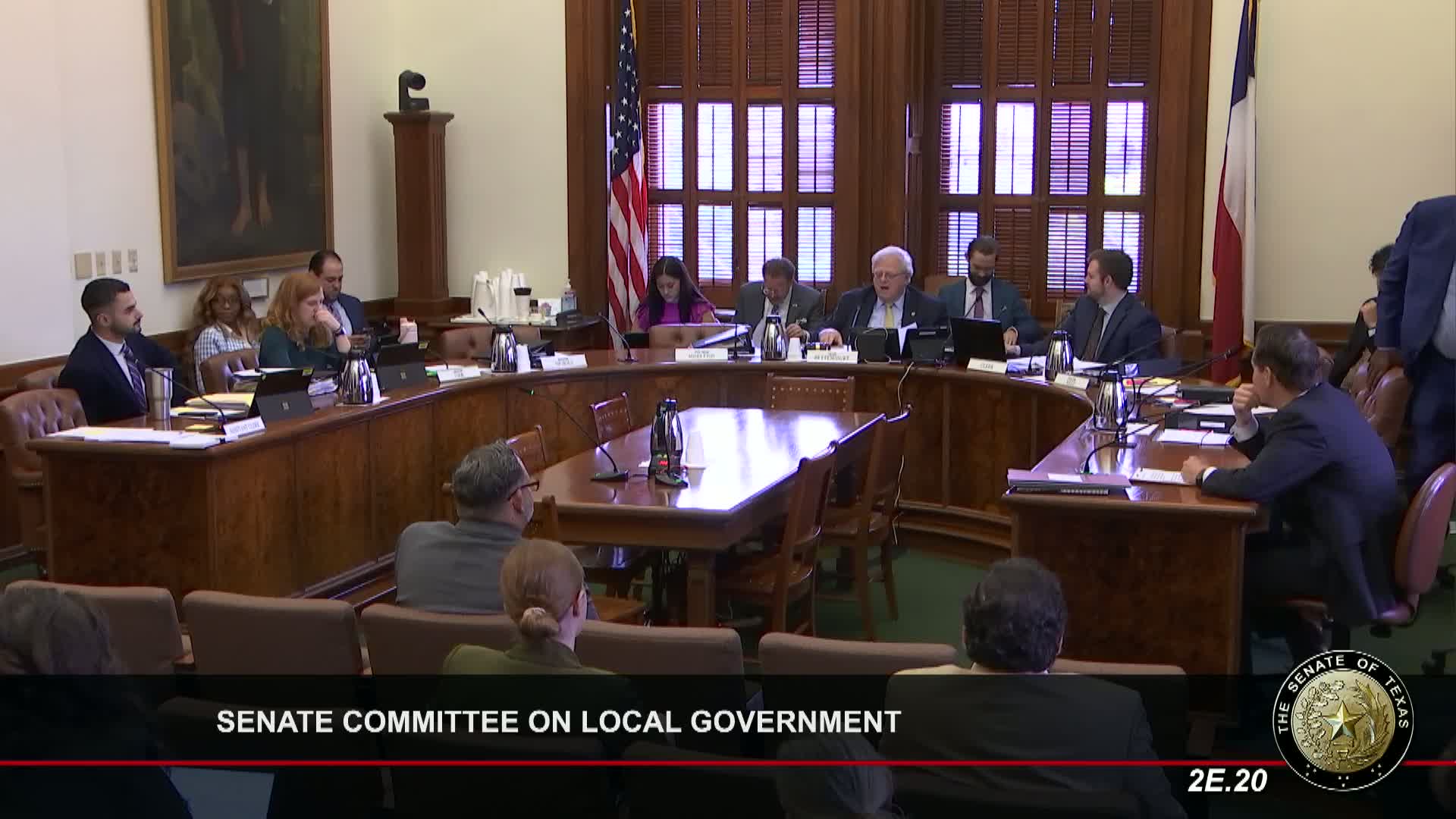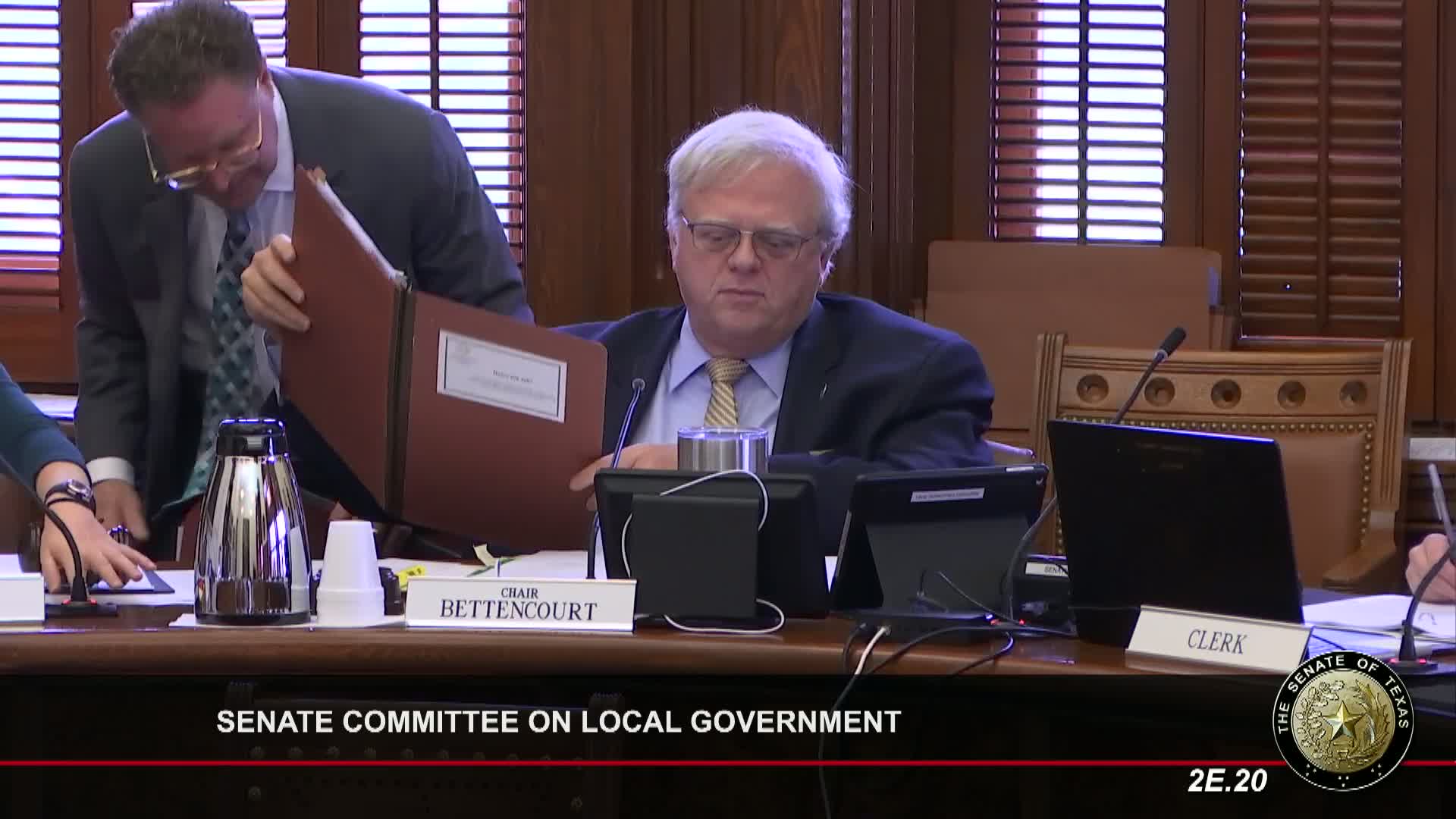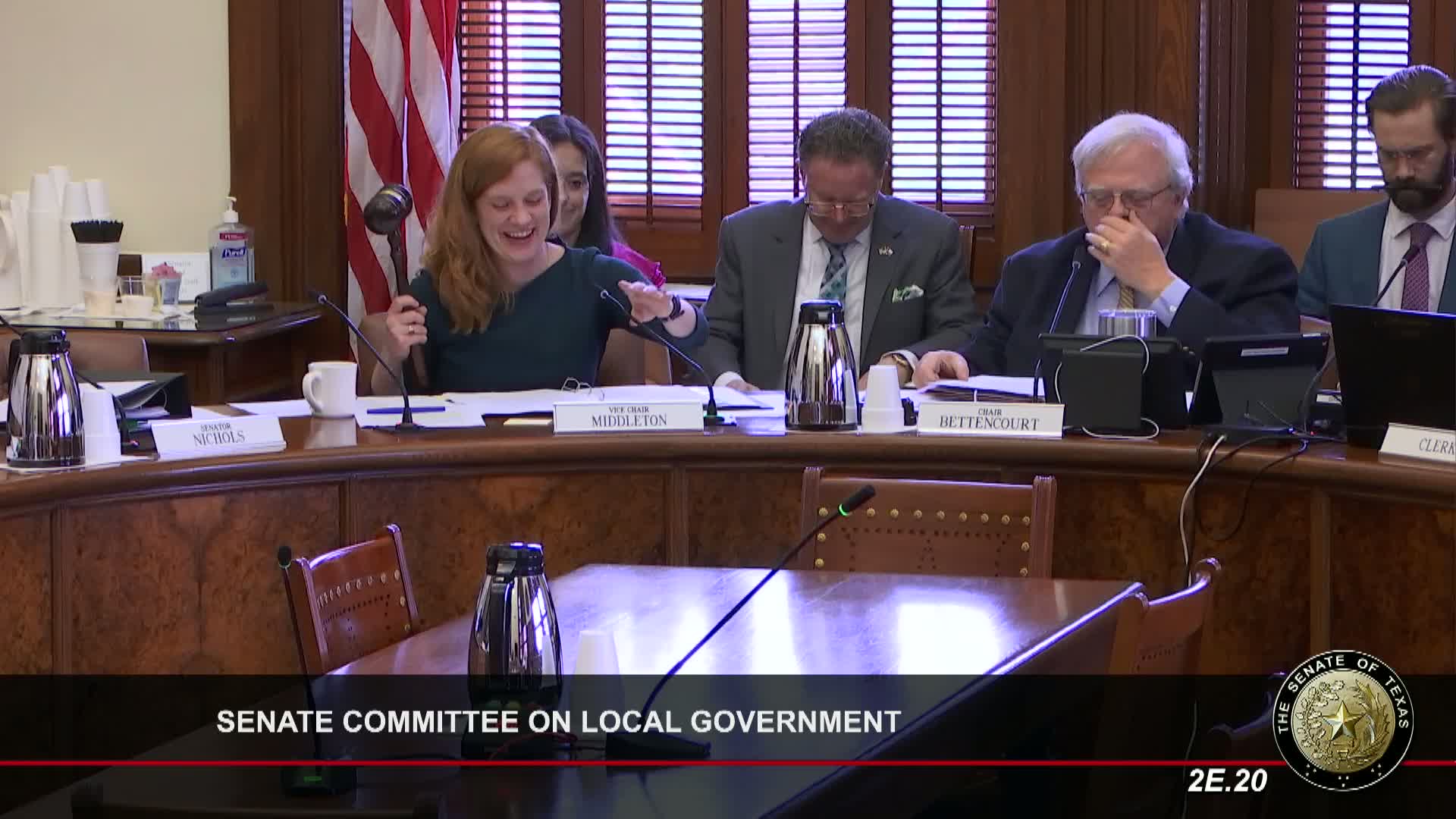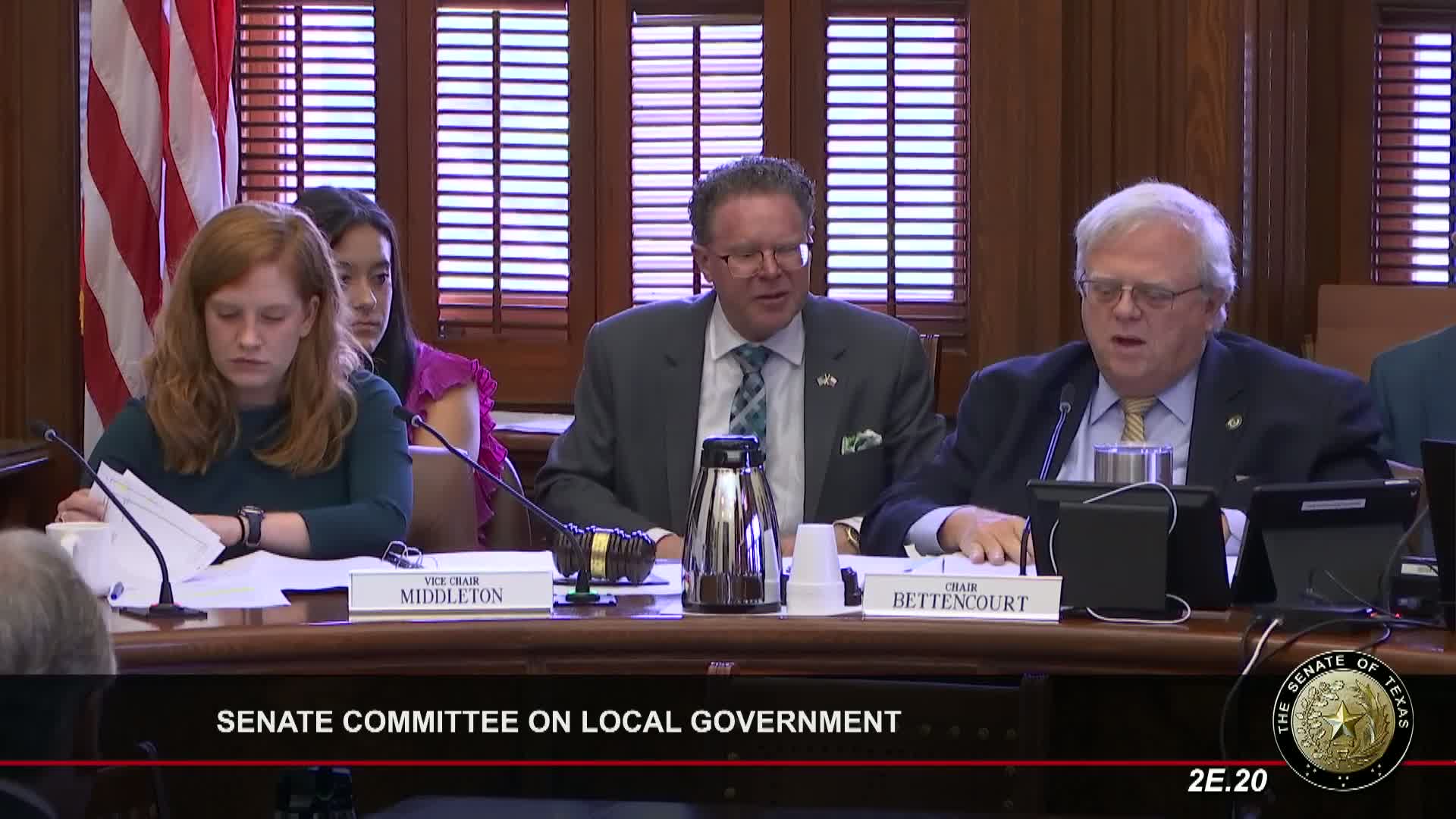Article not found
This article is no longer available. But don't worry—we've gathered other articles that discuss the same topic.

Committee considers HB 4506 to let municipalities offer electronic zoning notices by opt-in

Committee hears bill to set statewide qualifications for county fire marshals in larger counties

Committee hears wide-ranging debate on SB 3071, which would allow injunctions if voter-approved tax uses materially deviate

